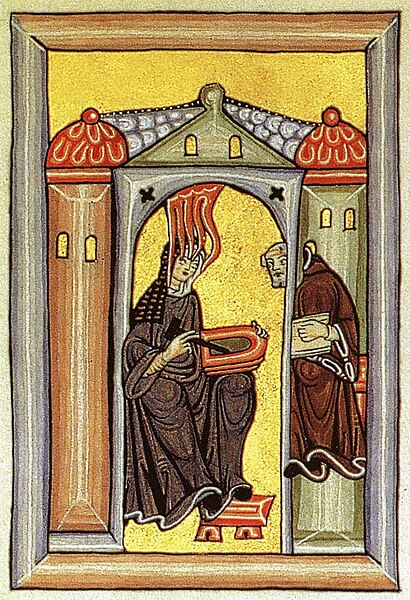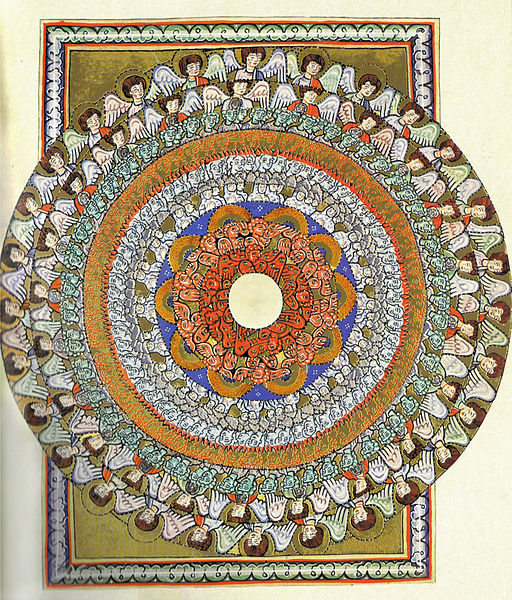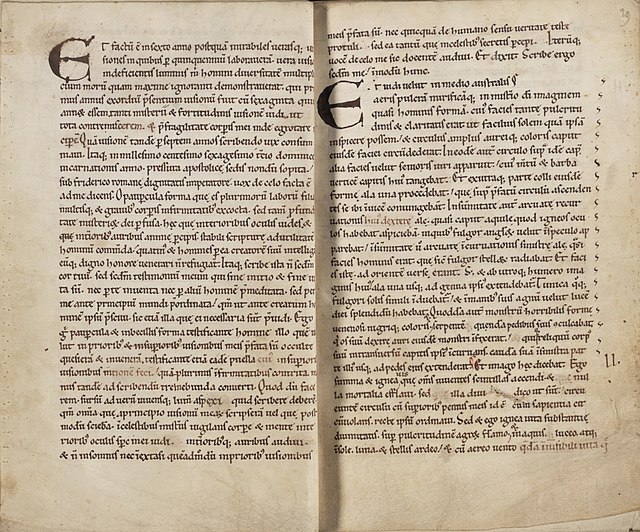Hildegard of Bingen, also known as Saint Hildegard and the Sibyl of the Rhine, was a German Benedictine abbess and polymath active as a writer, composer, philosopher, mystic, visionary, and as a medical writer and practitioner during the High Middle Ages. She is one of the best-known composers of sacred monophony, as well as the most recorded in modern history. She has been considered by a number of scholars to be the founder of scientific natural history in Germany.
Illumination from Hildegard's Scivias (1151) showing her receiving a vision and dictating to teacher Volmar
Scivias I.6: The Choirs of Angels. From the Rupertsberg manuscript, folio 38r.
The Church, the Bride of Christ and Mother of the Faithful in Baptism. Illustration to Scivias II.3, fol. 51r from the 20th-century facsimile of the Rupertsberg manuscript, c. 1165–1180.
Excerpt from a 12th century manuscript, preserved in the Ghent University Library
A polymath is an individual whose knowledge spans a substantial number of subjects, known to draw on complex bodies of knowledge to solve specific problems.
Benjamin Franklin is one of the foremost polymaths in history. Franklin was a writer, scientist, inventor, statesman, diplomat, printer and political philosopher. He further attained a legacy as one of the Founding Fathers of the United States.
The Developmental Model of Polymathy (DMP)






